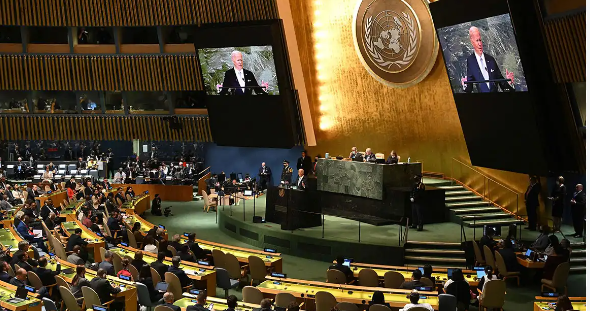UN Body Withholds Accreditation To India’s Human Rights Commission
There is a lot of attention on India’s National Human Rights Commission (NHRC) because it needs to follow the Paris Principles to keep its accreditation standing with the Global Alliance of National Human Rights Institutions (GANHRI). This kind of approval is very important for India’s ability to speak and vote at the UN Human Rights Council.
What is the Significance of GANHRI Accreditation?
GANHRI, which is part of the UN, requires that member National Human Rights Institutions (NHRIs) like the NHRC go through regular reviews to make sure they are still accredited. This makes sure that the Paris Principles are followed, which test how independent, fair, and skilled an NHRI is. Not having the right credentials could make it harder for the NHRC to play a meaningful role in the global human rights government.
Understanding the Paris Principles
The Paris Principles, which were adopted on December 20, 1993, set rules for how NHRIs should work. Some important requirements are having a broad mandate based on universal rights, autonomy, freedom, pluralism, enough resources, and strong investigative powers.
Current Accreditation Status of India
The National Health Commission of India (NHRC), which was set up in October 1993, was last given a “A” rating in 2017. Recently, though, evaluations have been put off because of worries about how well the NHRC is following the Paris Principles. These worries include problems with how appointments are made, the lack of minority participation, and possible government interference.
Implications of Losing ‘A’ Status
If NHRC doesn’t keep its “A” accreditation, it won’t be able to vote or represent India at the UN Human Rights Council or other important foreign meetings. This limit could make it harder for India to have a say in global human rights policies and talks.
Current Deliberations on NHRC’s Status
The Subcommittee on Approval (SCA) of GANHRI, whose job it is to make sure that the Paris Principles are followed, has put off India’s NHRC approval until it can be looked at more closely. Many human rights groups are worried about India’s NHRC because it isn’t very open and doesn’t have enough people from different backgrounds working on it.
More About United Nations Human Rights Council
- Establishment and Structure: Established in 2006 to replace the UN Commission on Human Rights. It comprises 47 member states elected by the UN General Assembly. It is located in Geneva, Switzerland.
- Functions and Mechanisms: Assesses human rights practices of all 193 UN member states. Can get together if only one-third of its members ask them to. It gives the Council advice and experience and acts as its think tank.
- Controversies and Criticisms: The U.S. withdrew in 2018 citing bias but rejoined in 2021. It faces criticism for including member states with poor human rights records.
Month: Current Affairs - May, 2024
Category: India Nation & States Current Affairs • International / World Current Affairs


